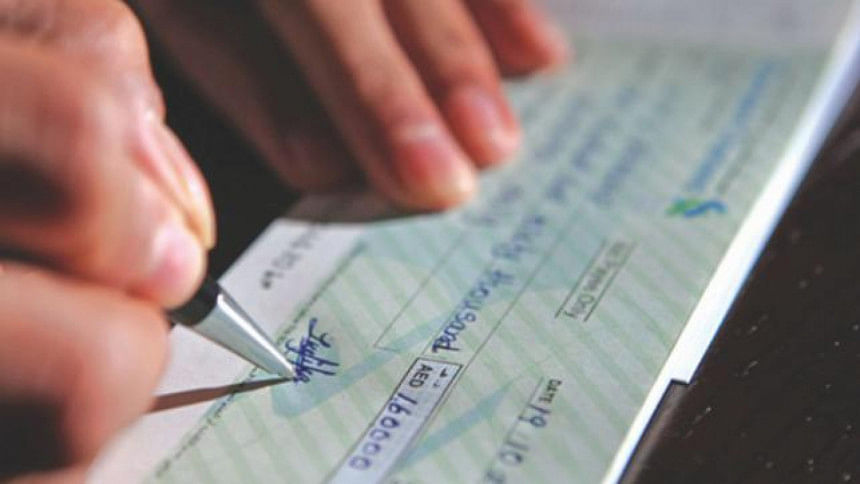Dishonour of cheque is a civil wrong, not a criminal act

The High Court Division (HCD) of the Supreme Court of Bangladesh has recently opined that imprisonment of a person in a cheque dishonour case under the Negotiable Instruments Act, 1881 is tantamount to the deprivation of the right to personal liberty enshrined under article 32 of the Constitution of Bangladesh. The HCD made this comment while disposing of an appeal by Mohammad Ali, who was sued by BRAC bank and received a sentence of 6 months and penalty of 2.95 lakh in the trial court.
There are many offences which fall within the category of civil wrong. Usually, after a breach of a civil wrong, remedy in the form of compensation or damages are awarded to the plaintiff. However, according to section 138 of the Negotiable Instruments Act, the convicted person could be punished with imprisonment for a term which may extended to one year, or with fine which may extend to three times the amount mentioned in the cheque, or with both. Such a legal position has been meant to stop the endemic problem of cheques being dishonoured.
Citing some examples of the legal systems of the developed world, the HCD bench expressed that in various countries including Singapore, France, England, Australia, there is no provision of criminal punishment or imprisonment in connection with cheque dishonour cases. As we can see in these countries, cheque dishonour cases are considered as merely a civil wrong.
Like dishonour of cheque, defamation is a civil matter. Though initially it was a crime and punishment used to be imposed for defamation to someone, now many countries have made it only a civil wrong. All international mechanisms take it as a civil wrong. However, defamation still is a crime in our legal system. Section 500 of the Penal Code, 1860 stated that whoever defames another shall be punished with simple imprisonment for a term which may extend to two years.
Article 32 of Constitution provides that no person shall be deprived of life and personal liberty save in accordance with law. In Vikram v Bihar (1988), the Supreme Court of India stated that the right to life includes the right to live consistently with human dignity and decency. From the judgment given by the HCD, it is crystal clear that the existing provision of section 138 of the Negotiable Instrument Act is ultra vires to the spirit of the Constitution of Bangladesh. Moreover, Bangladesh is a party to the International Covenant on Civil and Political Rights (ICCPR) which forbids sending of a person to prison for failing to discharge his/her contractual obligations. Article 11 of the ICCPR provides that no one shall be imprisoned merely on the ground of inability of fulfilling a contractual obligation. This Act is perhaps still carrying the legacy of the colonial legal system in the country.
Like in Bangladesh, there is provision for imposition of both civil and criminal liability for dishonour of cheque in the USA. If the cheque is made for less than $500, the crime is considered to be a misdemeanor. As such, it is punishable by up to 12 months in jail and a fine up to $500. However, if the cheque was made for more than $500, or if the cheque was made from an out-of-state bank, the crime is a felony.
In the United Kingdom as well there is a civil remedy available under the Bill of Exchange Act, 1882 and gives an option to the payee to file a suit in a civil court. No criminal liability is imposed in Singapore, only civil liability is to be imposed on the drawer. In France, it has a master database called the Fichier Central des Chèques (FCC) which stores data of persons who issued more than one dishonoured cheque and subsequently bans them from issuing a cheque for another five years.
In a nutshell, keeping cheque dishonour as a criminal act shows nothing but our colonial mindset and a lack of foresight. Bangladesh is bound by its supreme law Constitution, as well as its international laws to keep this as a civil wrong. As such, Bangladesh should make necessary changes in its legislations regarding this issue to keep up with its obligations as well as the jurisprudential development of the world.
The writer is an Advocate, Dhaka Judge Court.

 For all latest news, follow The Daily Star's Google News channel.
For all latest news, follow The Daily Star's Google News channel. 



Comments